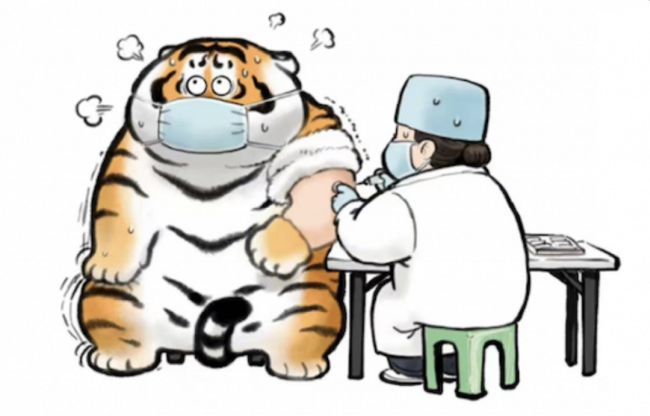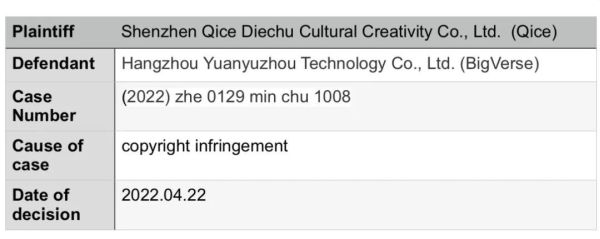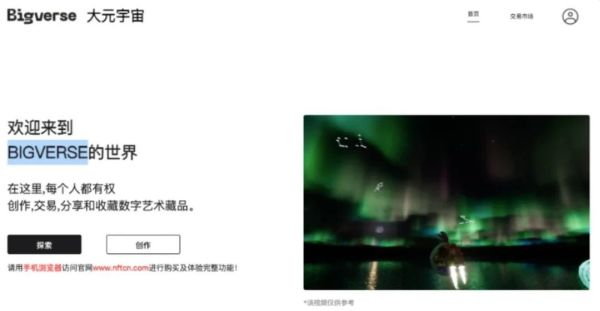
On April 22, 2022, Hangzhou Internet Court published a decision on the very first NFT intellectual-property infringement case in China.
A few months ago, we wrote about the famous Hermes Birkin trademark infringement case in the US, while the first NFT dispute in China is for copyright infringement. NFTs have recently exploded in popularity and therefore it shall not surprise that a dispute has reached the Court.
In this case, a platform that creates and distributes NFT (BigVerse) has used a cartoon picture created by an artist Mr. Ma Qianli to mint an NFT without getting an authorization from the copyright owner. The artwork concerned is a cartoon tiger receiving a vaccine shot. When the exclusive licensee of the copyright noticed the NFT, it sued the platform creating and distributing the NFT in court.
Summary of the case

Mr. Ma Qianli, the author of the artwork, has authorized Qice, a cultural company, to enjoy the exclusive copyright and the power to defend the "I am not a chubby tiger" series of artworks. Then, Qice found out that on the BigVerse platform that a user has cast and released an NFT called "A Chubby Tiger Taking Vaccination" and the NFT was sold for 899 CNY. The NFT digital work is identical to Mr. MA Qianli's published artwork on Weibo, and even still bears the author's Weibo watermark in the lower right corner.
BigVerse is a technology company which operates an NFT platform. During the minting process, it only requests the user to submit the picture of NFT artwork, name, introduction, description, tags etc., but it does not request any proof of IP ownership.

Qice sued BigVerse in Court and argued that as a professional NFT platform, BigVerse should bear the duty of prior examination of potential IP infringement on NFT digital works published on its platform and not only the obligation of "notice-deletion" afterwards.
This is because once the NFT digital work is minted and uploaded, in case of IP infringement, it is difficult to remove the infringing work as easily as traditional Internet information.
The defendant, BigVerse, has not only failed to fulfil its obligation of checking the copyright of the work, but also charged a certain percentage of transaction fees. Thus, Qice claims that the defendant's behaviour constitutes the infringement of the right of dissemination via the information network and requests the defendant to stop infringement and compensation for damages of 100,000 yuan.
BigVerse replied that it should not be responsible for the copyright infringement because
- first the NFT is uploaded by users but not the platform;
- second as an NFT trading platform, it only bears the obligation of "notice-delete" and it has removed the NFT from the platform after receiving the notice;
- third, currently there is no explicit provision in Chinese law regarding NFT infringement and thus the platform has no obligation to disclose the specific blockchain, the address of the NFT nor the content of the intelligent contract used by the NFT;
- lastly, this case should apply the principle of exhaustion of rights.
After examination, the Court decided that the platform has indeed infringed the right of dissemination of the plaintiff, the counter responses should not be supported, and the defendant should immediately delete the "A Chubby Tiger Taking Vaccination" NFT work and compensate Qize for economic losses and reasonable expenses for RMB 4,000.
This case is important and innovative because the court has clarified the following points:
1. The act of trading NFT digital works is controlled by the right of dissemination via information network.
The trading of NFT involves minting and selling. The minting process involves the act of uploading the artwork; and the selling involves the presentation of the NFT digital works on the trading platform, the act of a user of the NFT trading platform pays fee through a digital wallet, and then the buyer instantly becomes the owner of the NFT digital work publicly displayed on the platform.
Therefore, the mining and trading of NFT digital works involves the reproduction, sale and dissemination of the copyrights artwork via digital information networks.
What the buyer obtained after the NFT transaction is a property right; not a license to use a digital property, nor an authorization of using an intellectual property right.
NFT transaction meets the characteristics of dissemination of information networks because NFTs are provided in the public Internet environment through casting, the trading objects are unspecified public, and each transaction is automatically executed through smart contract, which can make NFT digital works available to the public at the selected time and place.
2. NFT digital work trading platforms should undertake a higher duty of censorship
The platform in dispute is specialized in providing NFT trading services, and the NFTs works traded are provided by registered users of the platform. Considering the special characteristics of NFTs, the trading mode, technical characteristics, platform control ability and profit model, the court defined the platform as a network service rather than a content provision platform.
Consequently, the disputed platform not only needs to fulfill the responsibilities of a normal internet platform, but also should establish a set of intellectual property review mechanism to do preliminary review on the copyright aspects of the NFT works, otherwise it should bear the corresponding legal responsibilities.
3. The infringement of NFT works can be stopped in an innovative way
Due to the characteristics of NFT, once it is minted or uploaded to the blockchain, it is immutable. This is to say that the NFT will always exist on the blockchain. However, the court confirmed that the infringement can be stopped because an NFT can be "burned" by removing it from the circulation and sending it to a black hole.
4. NFT digital work transactions should not apply the principle of "exhaustion of rights"
The court has confirmed that the principle of "exhaustion of rights" in copyright area is originally based on the inseparability of the work from its tangible carrier.
However, the Internet has changed distribution of works, and copies of works are available to the public without the need to transfer a tangible carrier. Thus, the NFT in dispute should not be controlled by the right of distribution, and thus the case lacks the premise and basis for the application of "exhaustion of rights".
The case is very innovative, revolutionary not only because it is the first NFT copyright case, but also because the court has applied the "should know" in Article 1197 of China's Civil Code. This case has clarified that it is not enough for an NFT platform to fulfill the "notice-delete" obligation after the event, but should do pre-examination.
The NFT trading platform needs to ensure that the user casting NFTs is the copyright owner or authorized person of the original work. The case also shows that although the legal attributes of NFT are currently unclear in China, the NFT field is not an extra-legal place.
The content of this article is intended to provide a general guide to the subject matter. Specialist advice should be sought about your specific circumstances.
